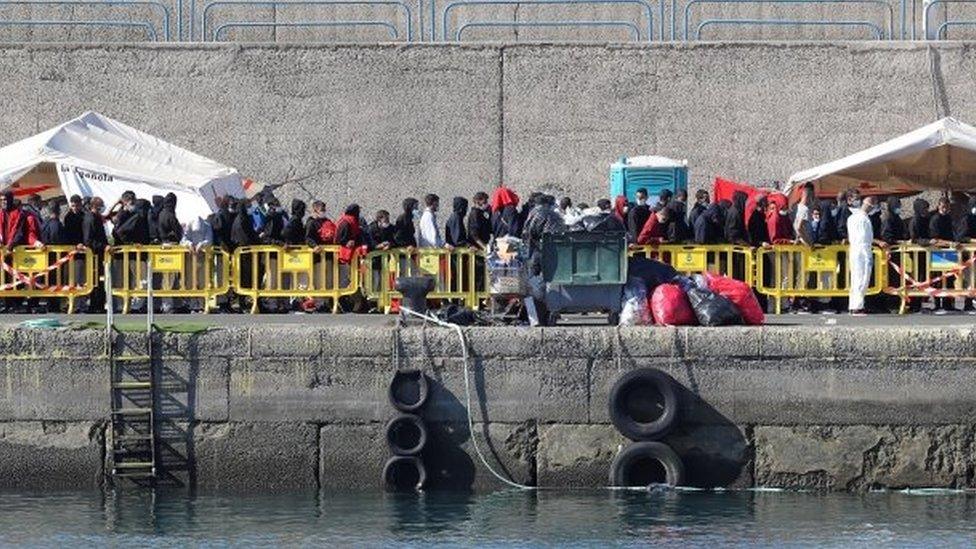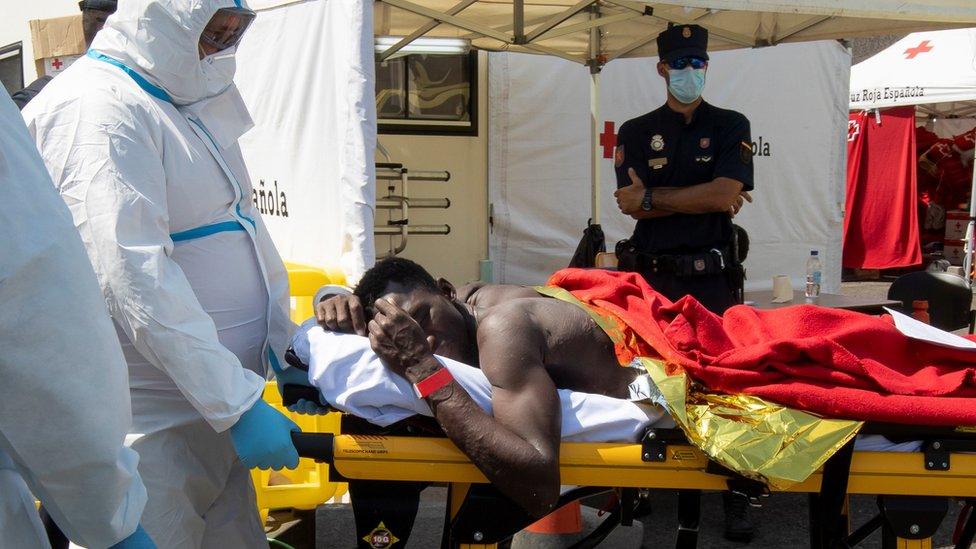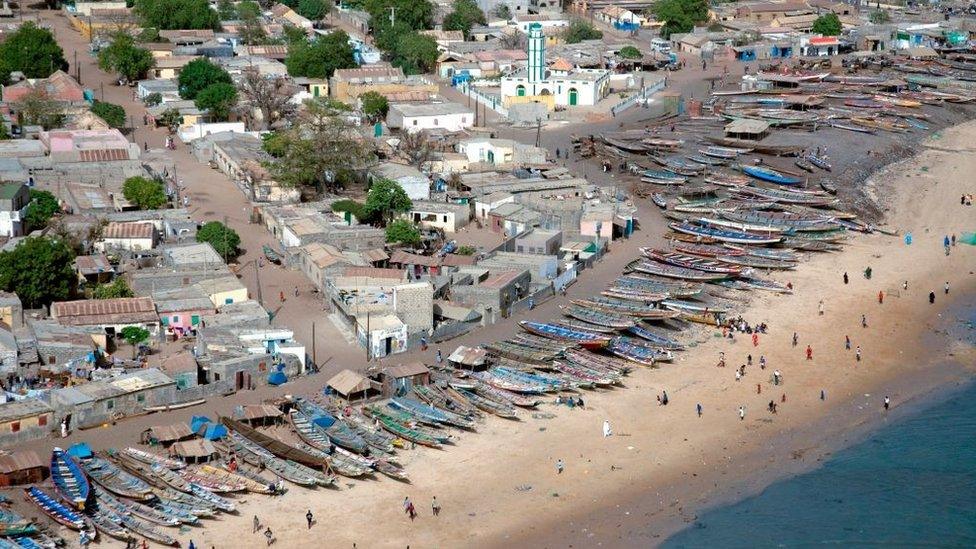Canary Islands to provide emergency shelter for 7,000 migrants
- Published

The Spanish government says it will provide "more stable" processing facilities
Spain is to set up emergency camps on the Canary Islands to provide shelter for some of the thousands of recently arrived migrants.
Migration Minister Jose Luis Escriva said temporary accommodation for 7,000 migrants would be ready within weeks.
More than 18,000 people have arrived on the islands this year, more than 10 times the number seen in 2019.
Some 2,000 have been sleeping in what officials called "subhuman conditions" in Gran Canaria's Arguineguin port.
The port was set up to process arrivals and run virus tests but has been overwhelmed by new arrivals, even though hundreds had been moved to a temporary camp nearer the capital Las Palmas.
Mr Escriva said the additional tented accommodation - set up on both municipal and private property - would relieve pressure on an overcrowded temporary facility as well as hotels and holiday lets currently being used to house migrants.
The government, he said, was preparing a "more stable" arrangement for processing new arrivals.
But he warned that only a small proportion of the arrivals this year would qualify for asylum.
"Our reception system is tailored for vulnerable people and people who have asked for international asylum," he said. "This is not the case with the majority of migrants that have arrived, maybe just 10% of them."
The Canary Islands are just 100km (60 miles) off the coast of North Africa and migrants have been arriving on the islands of Gran Canaria, Tenerife and El Hierro.
The coronavirus crisis has deepened the struggle facing migrants in Calais and the UK
It is thought EU agreements with Turkey, Libya and Morocco to block popular migrant routes, as well as a loss of income due to the coronavirus pandemic, are behind the rising numbers of migrants arriving in the Canary Islands.
At least 414 people are known to have died along this route so far this year according to the International Organization for Migration. A total of 210 fatalities were recorded on the same stretch in the whole of 2019.


- Published10 October 2020

- Published29 October 2020
